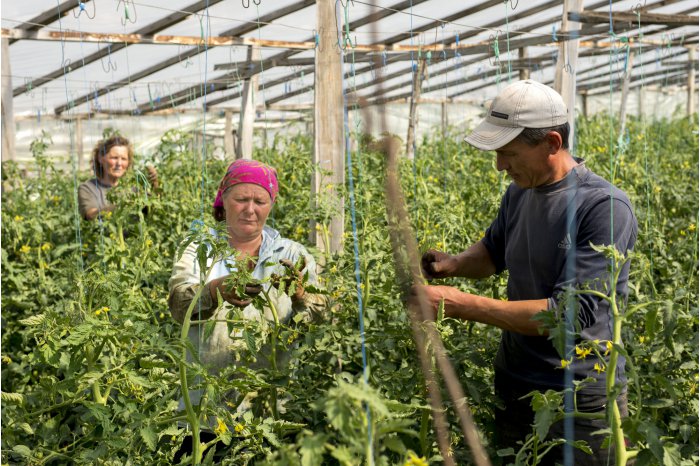FAO Moldova to implement programme on backing small, medium farmers
19:45 | 19.10.2016 Category: Economic
Chisinau, 19 October /MOLDPRES/ - The local representation of the United Nations Food and Agriculture Organisation (FAO) will provide support to Moldova to work out policies on backing small and medium farmers, promotion of sustainable and innovative agriculture, reduction of emissions of greenhouse gases and ensuring the food security. The assistance will be offered within a new programme due to be signed this year.
The priorities of the 2016-2019 programme today were unveiled at a seminar organized in the context of marking the World Food Day. FAO will financially contribute to the budget needed for the activities included in this document and will provide support to identify other foreign donors.
The FAO programme comes in the context of the signing of an agreement on climate changes in Paris, an accord Moldova is party to along with another 176 states, and fits into a global strategy of agriculture’s adaptation to the climate changes and mitigation of agriculture’s impact on the environment.
The new FAO programme in Moldova for the next four years provides for backing Moldova in carrying out agricultural practices that will stimulate the reduction of emissions of greenhouse gases. The main actions will consist in simulating environmentally friendly technologies, including technologies of conservative agriculture,” a FAO Moldova deputy representative, Tudor Robu said.
One of the essential components within the comprehensive support for small and medium farms is education of farmers through field schools – a FAO initiative implemented in the last two years and which will be extended for the next period.
“It is important that we promote necessary changes in direct contact with small and medium farmers. At field schools, over 150 farmers practically learn from other farmers how to adapt agricultural crops, so that they become resistant to climate changes, be productive and, at the same time, harm the environment as little as possible,” a FAO expert, Anatol Fala, said. He stressed that another about 10-15 field schools would be opened in more districts in the next four years.
(Reporter V. Bercu, editor L. Alcaza)

